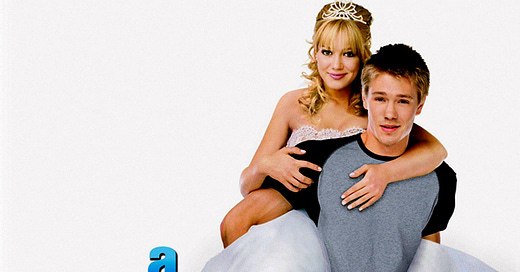My Beef with Roger Ebert
Never underestimate an 11-year-old whose parents have a newspaper subscription.
When I was 11, I wanted to be a film and TV critic. I also wanted to be a screenwriter or maybe an actress, but growing up in Davis, CA, without knowing a single person from Hollywood, becoming a critic was easier to envision. Shoutout to Joe Baltake (RIP) of The Sacramento Bee, whose reviews I read religiously. He rated harshly, so you knew his standards were high. Shoutout to Derrick Bang of The Davis Enterprise, who usually found something nice to say about every movie. Shoutout to Apple Trailers where I watched trailers for hours. Shoutout to IMDb, my nickname-sake, as around that time my parents started coming to me for news about upcoming movies and even following my recommendations. As the youngest child, earning this level of respect for my studied “expertise” was a dream come true.
The Sacramento Bee also published syndicated reviews by Pulitzer Prize winner and film critic extraordinaire Roger Ebert (RIP). I have a 19-year-old bone to pick with him and his incredibly insulting review of A Cinderella Story, which I still haven’t seen.
The day was July 16, 2004, notable as my grandma’s birthday and the day before my 12th birthday. I turned 12 on an airplane over the Atlantic, on the start of a family vacation. I turned 11 on a whale-watching trip, where I saw no whales and threw up twice. Twelve was a dream — I read Someone Like You by Sarah Dessen for the first time on the plane, and a not-exactly-related German relative gave me Happy Hippos when we landed. (It was my introduction to what’s still one of my favorite and cutest treats.) All that I say to convince you my memory is strong, and I remember reading this heinous review for the first time.
Ebert didn’t like the Hilary Duff and Chad Michael Murray (CMM) vehicle, aimed at girls my age. As I said, it’s not about the movie, which I heard from friends was “very fun” and read on Wikipedia has since become a “cult classic.” It’s about how he personally insulted 11-year-olds everywhere and me in particular.
His one-star review took the form of a letter addressed to 14-year-old Byron Turner, a boy who, according to an article in the Witchita Eagle, was a film buff who relied on “the Web” to decide what to watch. Ebert clearly became aware of this article because the teen’s mom was quoted saying she stopped watching Ebert’s show and instead just asked her son for recommendations. Ebert pandered and condescended to Byron, imploring him to tell his sister and mom not to watch A Cinderella Story. (What if Byron wanted to watch? Must we make such gendered assumptions, Roger?) However fun the trailers and posters might look with Duff in her ballgown and pink Converse, some decisions couldn’t be made based on the Web as we knew it in 2004. Byron should listen to the expert, the critic his mom had abandoned.
But then, Ebert called out another person quoted in the same Witchita Eagle article. Ernest Madison claimed he gave up on movie critics after they panned his favorite childhood movie Dragonslayer. Ebert wrote of Ernest, “He was about 11 when Dragonslayer came out. He must have been a child prodigy, to swear off movie critics at an age when most kids didn't even know they existed. If he still feels the same way, I hope he goes to see A Cinderella Story. That'll teach him.”
That was a tough day for all the 11-year-old loyal readers and aspiring film critics, to be alienated and made invisible by the titan himself. His treachery underscored a bigger problem: that adults underestimated kids at every turn. They made us feel small. They forgot we could read or think. Tragically for them, they forgot they were once kids themselves. Sandra Cisneros’s short story “Eleven” posits an image I’ve always loved, that at each age, we have all our younger selves from zero to today rattling around inside of us. The first line is: “What they don’t understand about birthdays and what they never tell you is that when you’re eleven, you’re also ten, and nine, and eight, and seven, and six, and five, and four, and three, and two, and one.” In psych-speak, we may call this our inner child. Or children; it’s busy in there. And the most condescending adults must’ve internalized the voices that once told them they didn’t know anything, didn’t belong here, they were just kids, just 11, just too young to understand anything at all.
I could say I was like Ernest Madison and gave up on film critics the day Ebert panned A Cinderella Story. But I did not. I continued to read his reviews, but I never forgave, and I never forgot. With each Ebert byline and each A Cinderella Story franchise sequel, I’d remember that he had counted me out and wasn’t writing to me at all.
Reading the review again, as a 30-year-old who’s also 25 and 18 and yes, definitely 11, too, I see I could’ve realized Ebert was calling me a “child prodigy” for reading his work. But I’ve never liked being pandered to.





Thanks for acknowledging & honoring your (our) “chid within.” Those memories & images remain our life’s blueprints. I love getting a glimpse into your experiences thru your skillful writing.
Reminded me of the time I spotted a Ebert at a Broadway play in New York City. Wanted to share some of my thoughts, but was too intimidated.
Nice essay, MS IMDB!